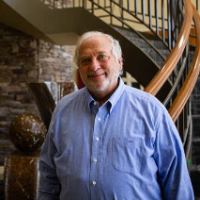 Ashland Criminal Lawyers, Nebraska
Ashland Criminal Lawyers, Nebraska
Sponsored Lawyers
1-10 of 30 matches
Car Accident, Personal Injury, Wrongful Death, Criminal
Attorney James E. Harris always knew that he was destined to become a lawyer. Growing up in Nebraska, he looked up to his father, who was also an attorney, and dreamed that he would one day be able to follow in his footsteps by running his own law firm. In 1975, Jim earned his Bachelor’s Degree and continued on to earn his M.B.A. in 1977 — receiving both degrees from Arizona State University. Soon after graduating with his M.B.A., Jim returned to his home state to pursue his lifelong dream of becoming an attorney. Since earning his J.D. from Creighton University School of Law in 1979, Jim has been serving the legal communities in and around Omaha, Nebraska. Today, he is a recognized, board-certified civil trial advocate through the National Board of Trial Advocacy — serving Omaha and the surrounding areas of Douglas, Sarpy, Dodge, and Lancaster counties. Through his many years of practice, he has come to enjoy aggressively pursuing justice for his clients, even if it means going to court. Being a second-generation lawyer is what makes me passionate about my work. Being able to provide legal guidance for my local communities makes me proud to serve the people I work for. Jim is driven by providing a trustworthy attorney relationship and comfortable client experience. With the many prestigious awards he has received throughout his career, it shows! In his many years of practice, one of the most common client concerns he's discovered is that many people are unsure about whether or not to call on an attorney in the first place. That’s why he decided to build a career grounded in the idea that everyone deserves a comfortable client experience when dealing with legal troubles. His Omaha-based law firm, Harris & Associates, P.C., L.L.O, is dedicated to set apart from other firms by working hard to establish a solid reputation based on his competency and ability to find creative solutions for his clients’ legal needs. He is also committed to providing legal solutions that are cost-effective, including free consultations for all clients.
(more)Personal Injury, Criminal, Immigration, Car Accident
Burke is a native of Palmyra, Nebraska. He attended the University of Nebraska-Lincoln where he earned a Bachelor of Science in Criminology and Criminal Justice with a minor in psychology. After graduating from UNL, Burke went on to attend the University of Nebraska College of Law. He was awarded the CALI Excellence for the Future Award® and the Pat Gies Memorial Award for his work representing clients at the University of Nebraska College of Law Immigration Clinic. He also completed a program of concentrated study in immigration and civil litigation skills. Burke’s passion for his community and family led him to open his own firm to better serve the people around him. He takes an active role in the community by serving non-profits and volunteering his time. He loves working with young people and mentoring and coaching the next generation of Nebraskans. Outside of the office, Burke enjoys attending different sporting events and cheering on his Huskers, Texans, and Royals. He loves traveling, seeing the world, and making memories with his family.
(more)Criminal, Personal Injury, Felony, Misdemeanor
James N. Scarff, II, is a transplant from Jackson, Mississippi, where he was born and raised. After high school he initially played football at the University of Mississippi until an injury ended his football career. He then transferred to Millsaps College in Jackson, Mississippi where he would receive his Bachelor of Business Administration Degree in May 2003. Shortly thereafter, James received his Master of Business Administration degree from Millsaps College in May 2005. While at Millsaps College he received the Millsaps Award, Endowed Scholarship, and the Dean’s Scholarship. In August of 2005, James began law school at Mississippi College School of Law in Jackson, Mississippi. While in law school, James was a member of the Environmental Law Society and one of the founding members of the Sports & Entertainment Law Society, while managing to stay on the Dean’s List. After graduating in the top quarter of his law school class, James went to work for The Penton Law Firm out of Bogalusa, Louisiana where he practiced Mass Tort Litigation. His firm also served on the Plaintiff Steering Committee (PSC) for those harmed by the Federal Emergency Management Agency (FEMA) in the wake of Hurricane Katrina. His main focus at the firm was global pharmaceutical settlements and Multi-District Litigation (MDL). Those cases included Vytorin, Vioxx, Celebrex, Viagra, DPC Arizona, and other mass tort actions. Over $400 million in settlement funds was distributed. In June 2009, James moved back home to his roots in Jackson, MS and started his own practice. At Scarff Law Firm, LLC, James took on personal injury cases, domestic/family law cases, DUI, criminal defense, and business transactions. At that time, he was also general counsel for three separate businesses. While continuing his own practice, James became a trial lawyer associate at The McRae Law Firm, PLLC, in May 2012 and worked on briefing appeals to the Mississippi Supreme Court as well as Federal Court in the Northern and Southern Districts of Mississippi. In December 2015, James reconnected with his old high school sweetheart who had moved to Omaha, Nebraska after college. After a brief courtship, he married Emily Knight Scarff in May 2017 and promptly moved to Omaha, Nebraska. Where he shares a blended family with his wife. He has two step-sons, Hayden and Hudson Koesters, and a new addition to the Scarff Family came in September 2018, Colt Hayes Scarff. James also has a daughter, Emery Rose Scarff, who resides with her mother back in Mississippi.
(more)






